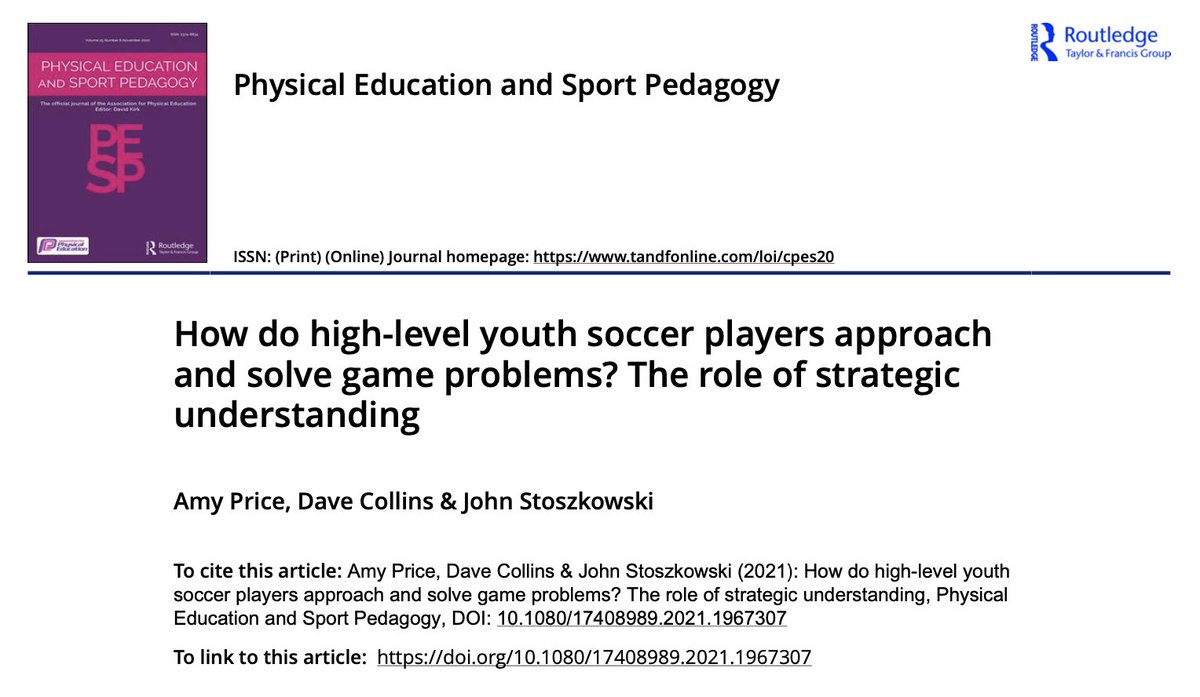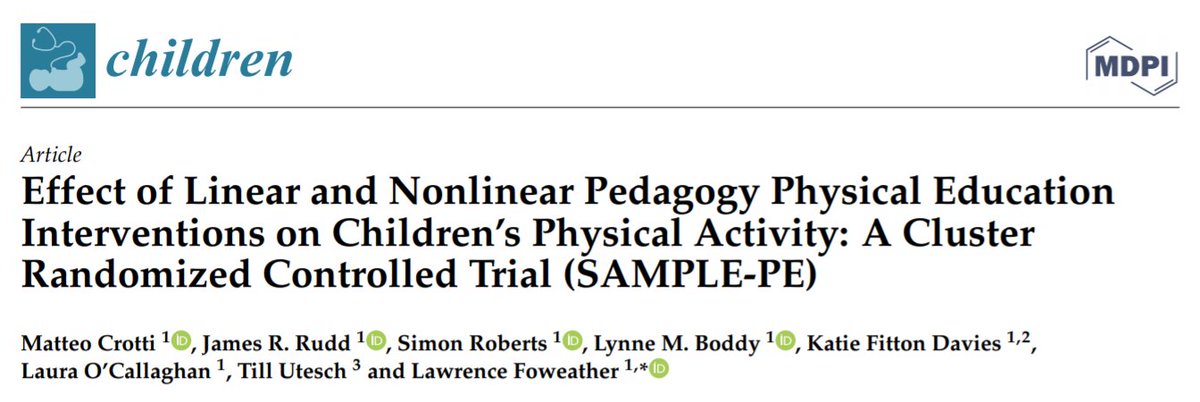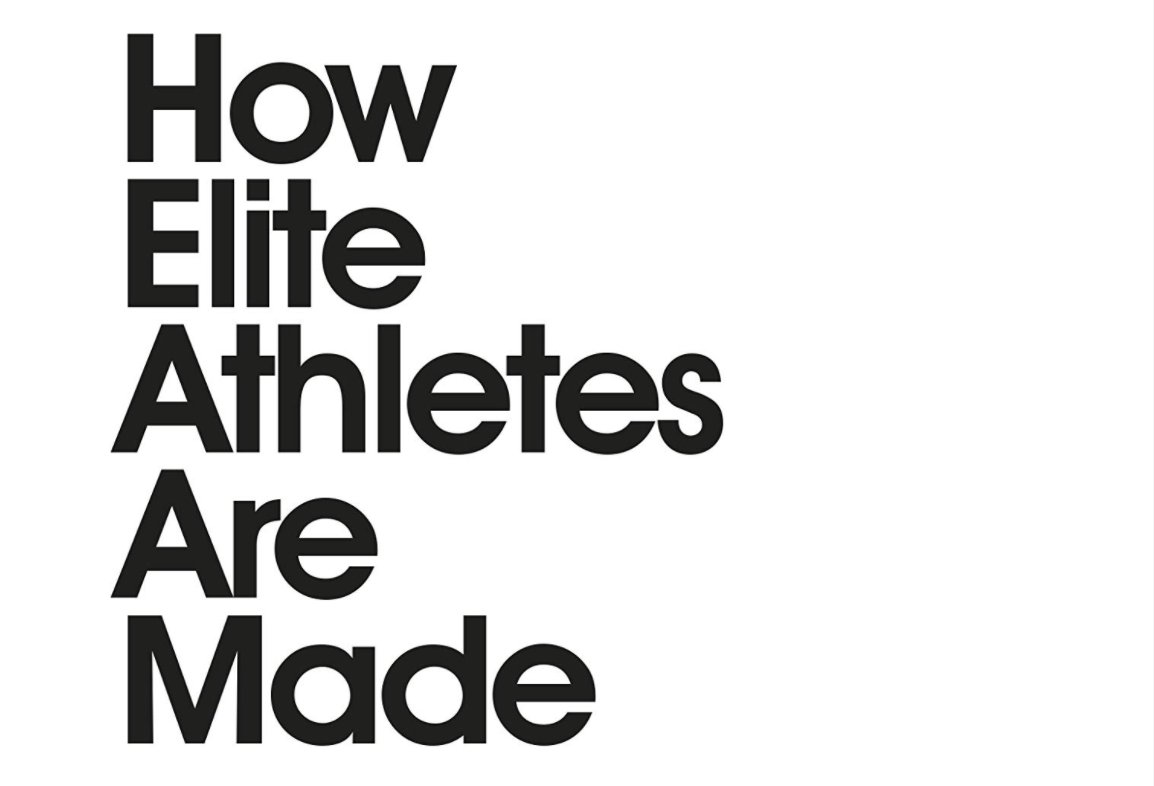
Guiding, Coaching, Mentoring - Coach Education, Leadership Training - Tripping & River Canoes - Photography, Video, Website Development - Experiential Learning
How to get URL link on X (Twitter) App


 In everyday coaching language, it can indeed seem "beyond question that remembering is essentially a matter of receiving, encoding & retrieving stored contentful information… The intuition… runs very deep… as if there is no other possible way to explain acts of remembering" 🧵
In everyday coaching language, it can indeed seem "beyond question that remembering is essentially a matter of receiving, encoding & retrieving stored contentful information… The intuition… runs very deep… as if there is no other possible way to explain acts of remembering" 🧵 
https://twitter.com/SingleBlade1/status/1506012805111156743Tragically, the PE Research Review (aka UKCC Mk.2) appears at a time when @Sport_England has finally moved on from the dysfunctional nonsense of the UKCC Mk.1 era… but it's sociologically illiterate & effectively perpetuates Blair/Cameron-era nonsense 👇




 Dystopian version: we end up with automata in "heads-up" mode… attuned to maps rather than to the territory in ways which amplify the impact of screwy datasets - locking in practices which just amplify historical norms, conventions, & stereotypes 🙄
Dystopian version: we end up with automata in "heads-up" mode… attuned to maps rather than to the territory in ways which amplify the impact of screwy datasets - locking in practices which just amplify historical norms, conventions, & stereotypes 🙄



 Over the last year, I've realised it's the pressure to frame reality in terms of "problems" that's the issue… because soon as we do that, we're giving up on the messiness of the real world & on the aspiration to do something which could end up with us seeing things differently!
Over the last year, I've realised it's the pressure to frame reality in terms of "problems" that's the issue… because soon as we do that, we're giving up on the messiness of the real world & on the aspiration to do something which could end up with us seeing things differently!

https://twitter.com/NoraBateson/status/1362373377571307521"What does it sound like, taste like, to be in discovery of the world with kids? Not *for* them, but *with* them [...] in these sessions, the knee-jerk repetition of parental instruction that is so submerged lost their invisibility because we started from another landscape"


 Yes, we should "grasp the current crisis’s upending of accepted wisdom" - because as @Jendaffin notes elsewhere, well intentioned staff are "paralysed in that system [&] overwhelmed by the shame associated with being stuck & contributing" - @NewSystemAlly
Yes, we should "grasp the current crisis’s upending of accepted wisdom" - because as @Jendaffin notes elsewhere, well intentioned staff are "paralysed in that system [&] overwhelmed by the shame associated with being stuck & contributing" - @NewSystemAlly



 "What distinguishes the expert from the novice, then, is not that the mind of the former is more richly furnished with content [but] a greater sensitivity to cues in the environment & a greater capacity to respond to these cues with judgement and precision" - not representatons!
"What distinguishes the expert from the novice, then, is not that the mind of the former is more richly furnished with content [but] a greater sensitivity to cues in the environment & a greater capacity to respond to these cues with judgement and precision" - not representatons! 

 Argument: "There Is No Such Thing as an International Elite Under-9 Soccer Player" 💪
Argument: "There Is No Such Thing as an International Elite Under-9 Soccer Player" 💪



https://twitter.com/ImSporticus/status/1343452107345719297

https://twitter.com/uk_sport/status/1339625405028954115Keith Davids is cited... but aside from a token reference to non-linearity, the report reads as if his lifetime's work (& the contributions of his colleagues around the world) has no relevance & poses no major challenges to a "business-as-usual" approach.

 2. Key 2 may be familiar -
2. Key 2 may be familiar -